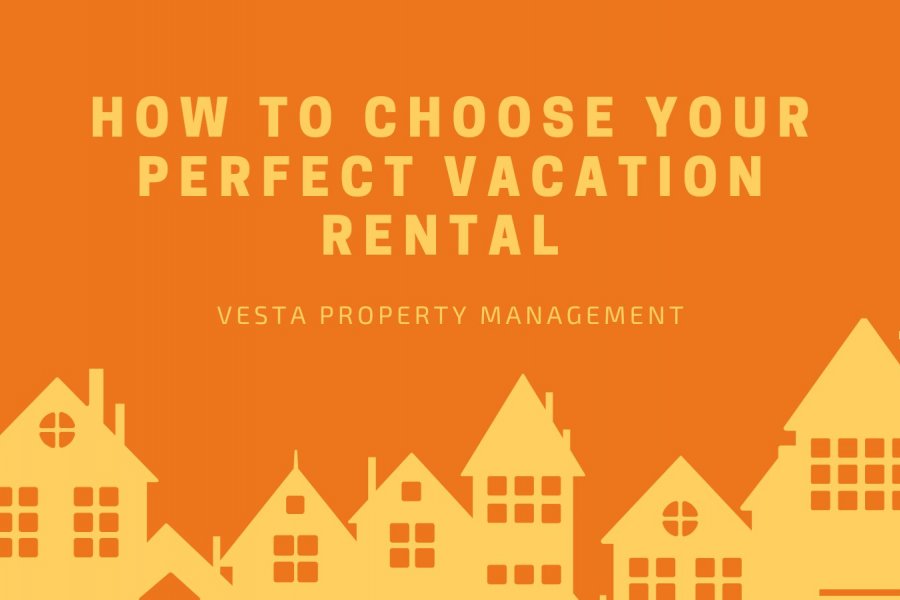
Choosing the right vacation rental is one of the most important decisions you can make for the success of your rental property. To make the most of this opportunity, it’s crucial to choose a property that meets the needs of both you as a landlord and your future guests.
With the right choice, your vacation rental can become a consistent source of income, attract high-quality tenants, and maintain a strong reputation in the rental market.
By the end of this article, you will have a clearer understanding of what to look for in a property and how to make a well-informed decision that benefits your business and the satisfaction of your guests.
Important Considerations When Selecting a Vacation Rental
1. Location is Key
The location of your vacation rental is one of the most significant factors in its success. Properties in popular vacation spots, such as near beaches, mountains, or tourist attractions, often command higher rental rates and remain booked throughout the year.
When selecting a location, consider not only how desirable the area is but also the accessibility of amenities like restaurants, entertainment, and public transportation. Proximity to these conveniences can be a selling point for many travelers.
Another important consideration is the seasonality of the location. Some areas may be popular year-round, while others might attract visitors only during certain times of the year. Understanding the demand cycle in your chosen location will help you plan better and manage potential off-peak periods.
2. Evaluate the Condition of the Property
Once you’ve identified a potential vacation rental, evaluate its current condition. An older property may require more maintenance and upfront investment in repairs or updates, which can increase your initial costs.

If the property needs renovations, it’s important to calculate the return on investment (ROI) of those improvements. Will the upgrades attract more guests and allow you to charge higher rates, or will the investment outweigh the potential benefits?
Some landlords opt for newly built properties or recently renovated ones to avoid these upfront costs. However, even newer properties require routine maintenance, so be sure to budget for ongoing care, especially in areas prone to wear and tear, like vacation destinations near the ocean or with extreme weather conditions.
3. Analyze the Local Vacation Rental Market
Researching the local market is essential to making a sound investment. Look at similar properties in the area to get a sense of average nightly rates, occupancy rates, and guest reviews. This will give you an idea of the competition and what you need to do to differentiate your property.
4. Consider the Property Size and Layout
The size and layout of your vacation rental should align with your target audience and the type of experience you want to offer. Consider how the layout of the property will affect its functionality as a vacation rental.
Open-concept layouts may feel more spacious and inviting for guests, whereas cramped or inefficient layouts can lead to dissatisfaction. Guests want a place where they can relax and feel comfortable, so ensure the property flows well and has spaces for dining, lounging, and sleeping.

5. Amenities and Features Matter
Amenities are often what set vacation rentals apart from traditional hotels, and they play a key role in attracting guests. Commonly sought-after amenities include:
- A fully equipped kitchen.
- Wi-Fi and entertainment systems (TVs, streaming services).
- Air conditioning and heating.
- Parking.
- A swimming pool or hot tub.
- Pet-friendly accommodations.
- Outdoor spaces like patios, decks, or balconies.
In some vacation spots, additional features such as ski-in/ski-out access, beachfront views, or a private dock may significantly increase the rental's appeal. Choose amenities based on your property's location and the type of experience you want to offer. Well-chosen amenities can justify higher rental rates and improve guest satisfaction.
6. Check Local Regulations and Permits
Before you finalize your decision, ensure that the property complies with local regulations and zoning laws related to short-term rentals. Some cities and towns have restrictions on the number of nights a property can be rented out or require special permits to operate as a vacation rental.
It’s also important to know if there are any homeowners' association (HOA) rules that could impact your ability to rent out the property. Familiarizing yourself with these rules early on will help you avoid potential legal issues and ensure that you’re operating within the guidelines of the community.
7. Calculate the Financials
Owning a vacation rental can be profitable, but it’s important to understand the financial aspects before making a purchase. First, estimate how much revenue the property could generate annually. Take into account factors such as average nightly rates, seasonal fluctuations, and expected occupancy rates.

Next, calculate your expenses, including mortgage payments, property taxes, insurance, utilities, maintenance, and management fees. Don’t forget to include costs for marketing the property and cleaning services between guest stays. It’s important to ensure the rental income will cover these costs and still provide a reasonable return on investment.
8. Consider Hiring a Property Management Company
Running a vacation rental can be time-consuming, especially if you have multiple properties or live far from the rental location. A property management company can handle many of the day-to-day tasks, including marketing the property, managing guest bookings, handling maintenance and repairs, and ensuring the property stays in good condition.
While property management comes with a cost, it can save you time and provide peace of mind, knowing that your investment is being professionally managed. Property managers are also experts in maximizing occupancy rates and ensuring a positive guest experience, which can lead to better reviews and repeat business.
Bottom Line
In summary, choosing the perfect vacation rental requires careful consideration of several factors, including location, local market conditions, property size, and amenities. By thoroughly researching each of these aspects and planning your finances, you can make an informed decision that will set you up for success in the vacation rental market.
Vesta Property Management can help landlords navigate the process of selecting and managing a vacation rental. Our team of experts can provide valuable insights on market trends, ensure your property meets local regulations, and manage the day-to-day operations of your rental to maximize your investment. Contact us today to learn more about how we can help you choose and manage the perfect vacation rental!